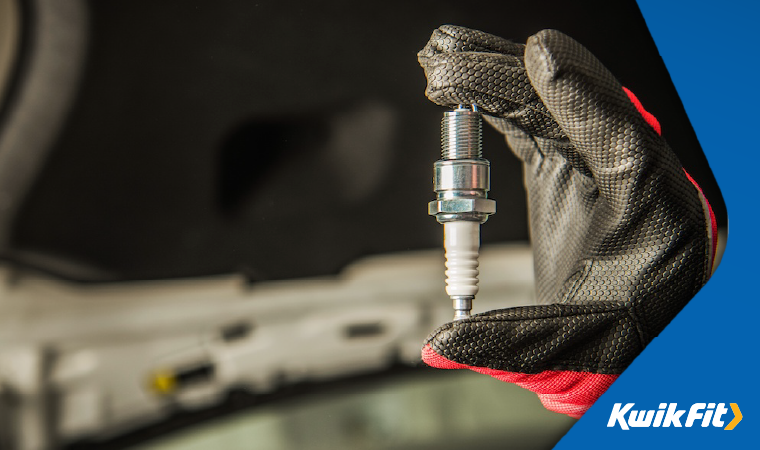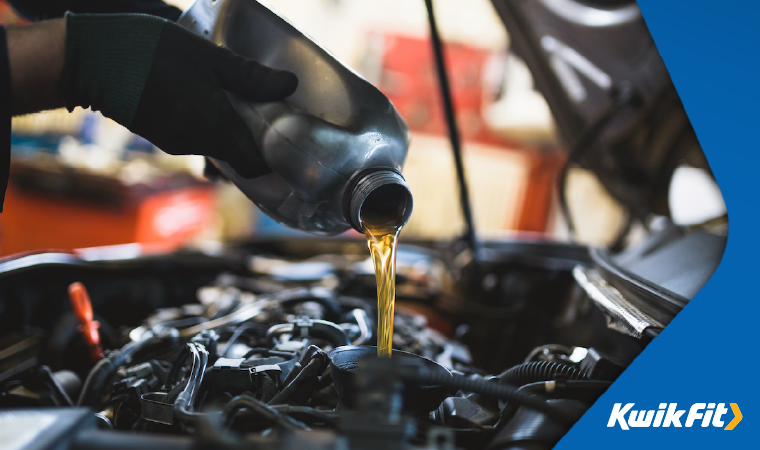What is a Rough Idle & What Causes it
Jack Dreyer | Wednesday 14th February 2024 9:00am

Idling happens to a vehicle when you start your engine and allow it to run without pressing the accelerator or changing gears. For a healthy vehicle, maintaining a steady rate of about 1,000 revolutions per minute means the engine is able to provide enough power to operate your carís basic systems, but when your car is experiencing issues, your RPM will not be so steady.
So, what actually is rough idle? It refers to an engine being Ďbouncyí or unstable, usually making odd noises, while the vehicle is stationary and the engine is running. It will see unsteady RPM fluctuations or a struggling engine that fails to maintain a smooth, consistent speed. Rough idling is a sign that a part of your engine isn't working properly and, over time, can result in poor gas mileage, starting issues and major engine problems.
Common causes of rough idle
If youíve recently experienced your car starting to shake or bounce when idling, itís best to diagnose the issues sooner rather than later. Finding out the cause for rough idle is key to keeping your car on the road.
Now we have established what rough idle is, let's delve into the most common causes.
Fuel system issues
The first and most common cause of rough idle is issues with your fuel system. These can include a clogged fuel filter, dirty fuel injectors, or even a malfunctioning fuel pump. These can disrupt the proper fuel-air mixture ratio, leading to rough idling.
Sometimes, something simpler such as dirty parts can also cause a rough idling engine. Your vehicle's fuel injectors disperse fuel into your engine at a precise angle and quantity to ensure optimal performance, therefore, if these are dirty the fuel injectors can also be a major contributor to poor gas mileage.

Faulty spark plugs, plug leads, and ignition coils
Another common cause are worn-out or faulty spark plugs. These can lead to inefficient combustion resulting in a rough idle. How spark plugs work is by using the electrical current received from ignition coils to ignite the fuel mixture within the combustion chamber. When these are damaged or installed incorrectly it can result in fuel being burned at an inconsistent rate. This can cause you to notice your engine running roughly while driving resulting in bumping or jerking.
In total, spark plugs, leads, and ignition coils that are damaged can cause the juddering and jolting of an unstable idling engine.
Vacuum leaks
Each vehicle has a hose under the hood that carries the fuel and air while creating a vacuum, however, newer vehicles have a throttle to regulate engine speed and airflow throughout the system. Like most things, these hoses can eventually wear out and develop a leak. When too much air flows through the system and mixes with the fuel it can cause rough idling due to misfires.
Diagnosing rough idle
You will usually be able to immediately identify if your vehicle is experiencing rough idling. While some cases are less severe than others, a rough idle is usually recognisable by a shaking and bouncing sensation in the vehicle. Odd sounds, as well as inconsistent RPM counts, may also be signs your car is rough idling. (above 1,000).
One of the main ways is to observe and listen for unusual knocking, tapping or misfiring noises. You can also observe the engine's behaviour, including RPM fluctuations, vibrations, and hesitation.
Other ways to identify rough idle can include -
- Dashboard warning lights for specific issues
- Inspect spark plugs
- Regularly examine the air intake system
- Check for vacuum leaks in hoses
- Perform compression tests
- Consult service manuals or professionals
By following these steps and conducting a thorough and regular inspection of your vehicle, you can identify the cause of rough idle and take appropriate steps to solve the issues. If diagnosis becomes challenging or if you're uncertain, consulting a qualified technician is advised.

Preventing and fixing rough idle
It might be obvious, but the best way to avoid a rough engine idle is to perform routine preventive maintenance on your vehicle. Similarly to those methods outlined above, it is important that fluid changes are carried out at prescribed intervals, spark plugs are checked and changed when needed, and hoses and wires are regularly checked for damage. Itís also important to keep parts clean and kept to a professional standard.
Vehicle care made simple with Kwik Fit
Got a concern with your vehicle? Observing unusual noises and judders, thinking it may perhaps be a rough idle but want a professionalís advice? Bring your vehicle into your local Kwik Fit centre for a choice of ways we can service your car, or simply book in for a free vehicle safety check.
Interested in learning more about your vehicle? Keep up with the Kwik Fit blog or, if youíve got any specific questions, get in touch with us today.
Any facts, figures and prices shown in our blog articles are correct at time of publication.
Featured Articles
Is it Illegal to Drive With One Headlight?
Saturday 19th July 2025
Wondering if itís illegal to drive with one headlight? Learn about the safety risks and penalties of illegal blown bulbs and why you should fix them promptly.
Air Con in EVs & Hybrids: Experts Answer Your Questions
Monday 30th June 2025
Does air con drain EV batteries? Can you use the air con while charging an electric car? Find out the answers to these questions & more from Kwik Fitís experts.
Why Is Your Car Making a Noise? Fixes & Tips
Friday 13th June 2025
When your car starts making unexpected noises, it can certainly be quite disconcerting; it may be nothing to worry about, but hereís what you need to know.









